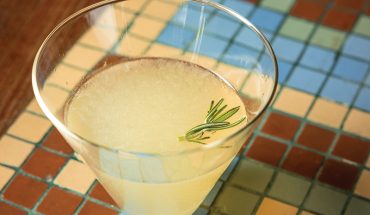by Catherine Currin | photography by Eamon Queeney

At Kanki, tradition is a priority. That’s true for the staff—many team members have worked there for decades—and for the patrons, too. The stalwart in Crabtree Valley Mall is a Triangle-wide destination for guests to mark birthdays, anniversaries and more. “It’s a unique place to celebrate,” says Master Chef Albert Lambert.
Kanki restaurant has been around since 1972. Sam Longiotti, who also founded Crabtree, fell in love with a similar teppanyaki-style grill in Atlanta and wanted to bring it to Raleigh. It opened on the lower level of Crabtree because it was a space that was less desirable for a retailer, says Tom Mukoyama, Kanki’s corporate General Manager. As popularity and demand increased, the restaurant eventually opened two additional locations, in North Raleigh and Durham.

Mukoyama started out as a bartender at Kanki while attending N.C. State, and the rest, he says, is history. After 33 years with the restaurant, he now splits his time between Kanki and his newest venture, Tonbo Ramen in downtown Raleigh. “When I tell people I work at Kanki, the first reaction I get is, ‘I love that place!’,” he says. True, the restaurant triggers a sense of nostalgia for many Raleighites: memories of birthdays celebrated, family dinners or a quirky chef with jokes and tricks throughout the meal. Lambert has contributed to the memories—he’s been cooking at the tables’ flat-top grills at the Crabtree location since 1991. “Kanki is like family. I’ve worked with some of these co-workers for as long as I’ve been here.” Originally from the Philippines, Lambert trained under Master Teppanyaki Chef Hal Ueda and cooked in numerous teppanyaki restaurants throughout the country before joining the team at Kanki.
While many visit Kanki for old reliables—salad with the famous ginger dressing, mushroom broth and endless, delicious hibachi combos—Lambert says the restaurant flexes its creativity to accommodate food trends and allergies. “The menu we had years ago was very simple. To keep up with the competition, we have added many more items to our daily and seasonal menus like specialty sushi rolls and unique happy hour deals.” The best-selling item by far is the filet mignon, says Mukoyama. “I also love the ribeye and especially the garlic butter shiitake mushrooms.” Lambert says that in addition to the food, the cooking spectacle plays a big role in returning customers: “They get to watch how their food is cooked right in front of them. Everything is freshly made—and everyone loves our yum yum sauce, of course.”

Mukoyama says that while Kanki was the first, it’s not the only anymore. Competitors have entered the teppanyaki market, but he believes Kanki has kept up on quality and service. “Aside from the tradition, we still have that top brand of consistent service and food quality.”
Kanki boasts such consistency, in fact, that some patrons visit the restaurant almost daily. There’s one family that’s come in every Friday night for 27 years (since before the kids were born and after the oldest left for college); another, says Mukoyama, that visits the restaurant six to seven times a week with their son, who was paralyzed in a car accident. “It’s his favorite place, and he feels comfortable here. When they walk in, we move things around to make sure there’s a seat.” Lambert says that the general feeling in the restaurant is the sentiment of one big family—and that includes more than just staff. “I’ve cooked for some of the guests that have been coming here for years, that they have become just like family too.”



